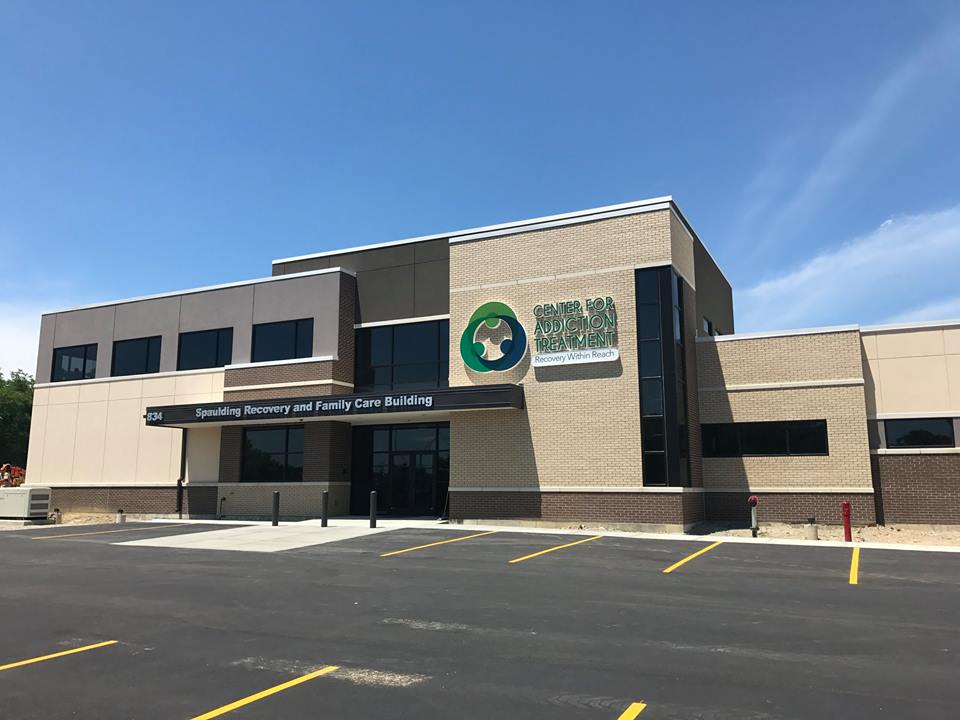Navigating the Trip of Detoxification in the Comprehensive Addiction Therapy Program
The procedure of detoxification holds a significant duty in breaking the physical dependence on materials and preparing the individual for the succeeding phases of treatment. As people grapple with the difficulties of withdrawal symptoms and the uncertainties that exist ahead, having a durable assistance and an organized plan system in place ends up being critical.
Relevance of Cleansing in Recovery

Detoxing establishes the structure for the remainder of the addiction treatment program by preparing the individual for additional treatment and counseling. By cleaning the body of substances that have been clouding judgment and influencing habits, detoxification makes it possible for patients to approach their recovery with a clearer mind and stronger focus.
Furthermore, cleansing assists in managing the potentially severe withdrawal signs that might emerge when medicine or alcohol usage is quit. Physician carefully check patients during detox to ensure their safety and provide necessary assistance. Via this procedure, individuals can begin their trip in the direction of soberness with a maintained physical and psychological state, enhancing the possibility of a successful recuperation.
Recognizing the Detoxification Refine
Detoxing, an essential component of dependency therapy programs, includes a structured procedure targeted at safely eliminating unsafe materials from the body to assist in a successful recovery trip. The detox process commonly starts with an evaluation to assess the person's compound use background, physical health and wellness, and mental health. This analysis assists health care professionals identify the most proper detox strategy tailored to the individual's demands.
During detoxification, the body goes via withdrawal as it gets used to the absence of the material. Withdrawal symptoms differ depending on the kind of substance utilized, the duration of usage, and specific aspects. Clinical supervision throughout detox is vital to manage withdrawal signs and symptoms and ensure the individual's security and comfort.

Managing Withdrawal Symptoms

Drugs may be made use of to minimize details withdrawal signs and lower pain. As an example, medicines like methadone or buprenorphine can aid manage opioid withdrawal signs and symptoms, while benzodiazepines may be made use of for alcohol withdrawal. It is important for medical care companies published here to meticulously monitor the individual's action to these drugs to ensure their security and effectiveness.
In addition to pharmacological treatments, helpful treatments such as therapy, peer assistance groups, and holistic practices like mindfulness meditation or yoga can aid people handle the psychological and psychological challenges of withdrawal. By dealing with withdrawal signs thoroughly, doctor can improve the cleansing experience and assistance individuals on their journey to recuperation.

Support Systems During Detoxification
Support group play an essential duty in providing psychological and social support to individuals undergoing cleansing in addiction therapy programs. During the detoxification process, people commonly experience a variety of physical and emotional withdrawal symptoms, making this phase tough - Addiction Treatment Center. Having a strong support system in place can significantly impact the individual's capability to navigate with detox effectively
Family members, good friends, assistance teams, and healthcare professionals are important components of the support system. Family members and buddies can offer encouragement, understanding, and a feeling of belonging throughout this tough time. Assistance teams supply a platform for individuals to get in touch with others that are undergoing comparable experiences, providing a sense of community and shared understanding. Medical care specialists, consisting of therapists, medical professionals, and therapists, play an important role in monitoring the person's development, supplying medical assistance, and offering support throughout the detoxification process.
Looking Ahead: Life After Detox
Having effectively finished the detoxing stage, people in addiction treatment programs now focus on planning for the challenges and chances that exist in advance in their trip in the direction of recuperation. Life after detox marks an essential shift period where individuals need to remain to improve the progression made throughout detoxification to keep their soberness. It is essential for individuals to recognize that the journey in the direction of recuperation is recurring and calls for devotion, dedication, and a readiness to welcome change.
One trick element of life after detox is the advancement of dealing systems to take care of triggers and desires you could check here that might develop. This might include learning new abilities, such as mindfulness techniques, cognitive-behavioral techniques, and stress and anxiety administration methods, to navigate challenging situations without considering material use. Additionally, people are urged to actively engage in recurring treatment, support system, and aftercare programs to reinforce their assistance network and receive advice as they browse the complexities of life post-detox.
Conclusion
Comprehending the detoxification process and handling withdrawal symptoms are important actions towards recuperation. It is essential to identify the significance of detoxification in the procedure of conquering dependency and moving in the direction of a life of sobriety.
Medical guidance throughout detoxification is crucial to manage withdrawal symptoms and ensure the individual's security and comfort.
By recognizing the detox process and its value in damaging the cycle of dependency, individuals can begin on a course in the direction of lasting recovery.
During the detoxification procedure, people frequently experience a variety of physical and emotional withdrawal signs, making this stage tough. Medical care experts, consisting of physicians, therapists, and specialists, play an important duty in checking the individual's progress, providing medical support, and offering guidance throughout the detoxification procedure.
Life after detoxification notes a critical change duration where check this people have to proceed to develop on the development made during detox to keep their soberness.
Comments on “Transformative Solutions: Selecting the Right Addiction Treatment Center”